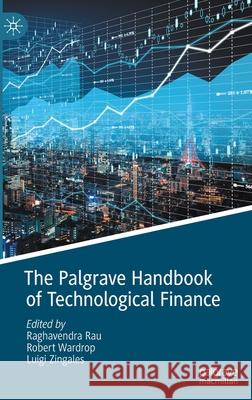The Palgrave Handbook of Technological Finance » książka
topmenu
The Palgrave Handbook of Technological Finance
ISBN-13: 9783030651169 / Angielski / Twarda / 2021 / 835 str.
Kategorie:
Kategorie BISAC:
Wydawca:
Palgrave MacMillan
Język:
Angielski
ISBN-13:
9783030651169
Rok wydania:
2021
Wydanie:
2021
Ilość stron:
835
Waga:
1.45 kg
Wymiary:
23.39 x 15.6 x 4.78
Oprawa:
Twarda
Wolumenów:
01
Dodatkowe informacje:
Wydanie ilustrowane











